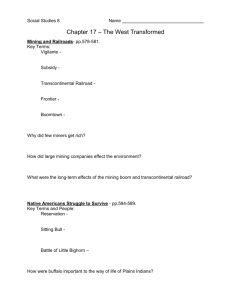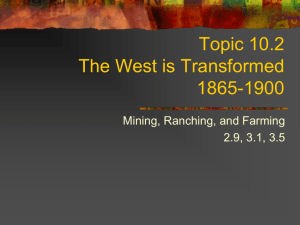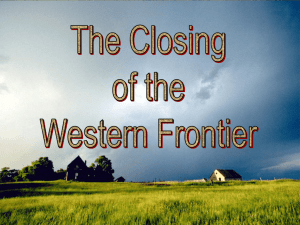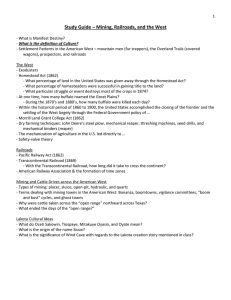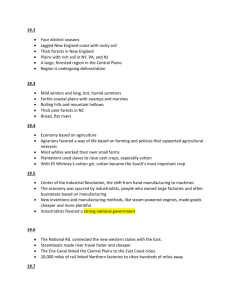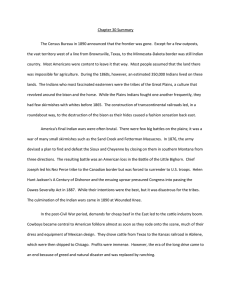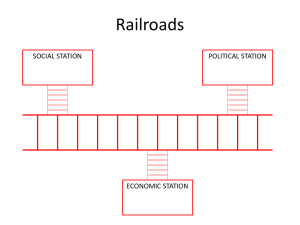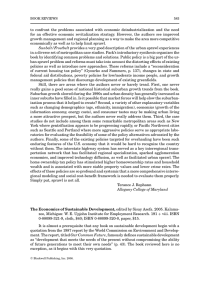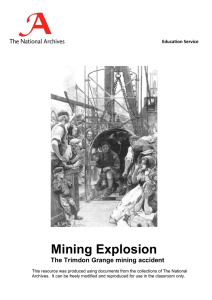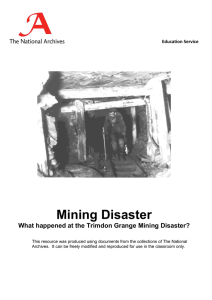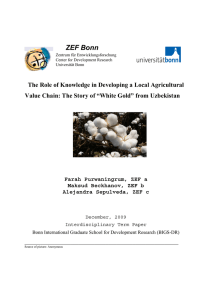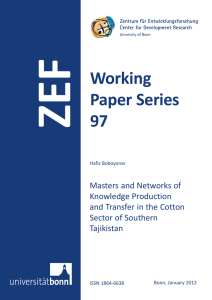Chapter 17 Rural America: The West and the New South
advertisement
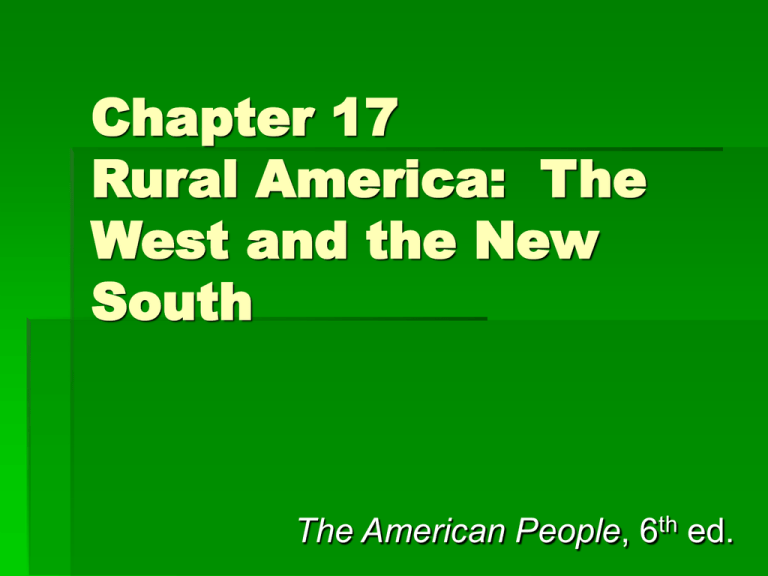
Chapter 17 Rural America: The West and the New South The American People, 6th ed. I. Modernizing Agriculture The expansion of American agriculture was inextricably tide to world demand Many European nations had to import the bulk of their food, especially England America’s new role as the agricultural center of the western world depended on technological innovation to make crop production more efficient This often backfired as a surplus of foodstuffs caused the market price to fall II. The West The Great Plains The Great Plains of the West initially discouraged traditional farmers, but cattlemen found the region perfect grazing land By the end of the Civil War’s blockades, the southern plains were crowded with herds of cattle Railroads changed the common views of the region and encouraged settlement Cornucopia on the Pacific Americans rushed to California to earn their share of the Gold Rush but usually ended up farming Fresh fruits and vegetables became California's largest export The Mining West Thousands of settlers rushed west to join the mining craze of the 1840s Silver, iron, copper, lead, zinc, and tin were as important as gold Real mining required a large labor force and expensive machinery Most independent miners panning streams never made their fortunes Exploiting Natural Resources The clear cutting of the nation’s forests were a byproduct of aggressive mining techniques and construction of towns and railroads Removal of the forests changed the nature of soil composition, water flow, and the habitats of native animals Many Americans became uneasy and called for government intervention and conservation III. Resolving the Indian Question The Plains Indians The American government’s perspective was that all Native Americans must relocate in one of two areas: Oklahoma and South Dakota Confined to reservations, the tribes would be transitioned into the white culture Some tribes refused to comply and were systematically extinguished IV. The New South Cotton Still King A new agricultural South with new class and economic arrangements emerged High cotton prices immediately after the war persuaded southern farmers to grow as much cotton as possible; prices quickly spiraled downward, throwing the entire region into more debt and poverty The Nadir of Black Life In the late 1800s, many Congressional bills from Reconstruction aimed to support and assist the newly freed slaves were cast aside by a new generation of politicians V. Farm Protest The Grange The earliest effort to organize white farmers was fronted by Oliver Kelley in 1867 Called the Order of the Patrons of Husbandry, the social club grew quickly to include more than 800,000 Now known as the National Grange, Kelley’s organization sought to reform the ways in which agricultural business was done; striving to bypass the middlemen such as railroad shippers and grain elevator owners Their lobbying led to legislation regarding how railroads could be regulated for the common good of the country
